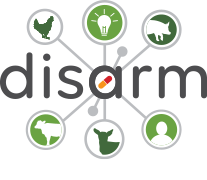418 – Biochemical proximates of pumpkin Cucurbitaeae spp and their beneficial effects on the general well‐being of poultry species (Research paper – Achilonu – 2017)
Click here for resource
418 Research paper
Biochemical proximates of pumpkin (Cucurbitaeae spp.) and their beneficial effects on the general well‐being of poultry species by M. C. Achilonu I. C. Nwafor D. O. Umesiobi M. M. Sedibe. 2017 Animal Physiology and Animal Nutrition 102: 16-May
In Significant Impact Groups: Feed / gut health \ Feed additives and supplements
Species targeted: Poultry;
Age: Adult;
Summary:
There is a growing need to increase productivity in poultry. The growth‐promoting antibiotics are administered to poultry to improve the general performance of the chicken. However, the use of the xenobiotic drugs in food‐producing animals has been a concern and a sensitive issue of debate for several decades in the EU and many other regional blocks of the world. Pumpkin seed extract is reported to be useful for immunomodulation, reproductive health, therapeutics over a wide range of disease conditions and stimulates metabolism of accumulated fats. Studies have also shown that pumpkin seeds are a valuable source of protein and fat. Their complexity and extent of bioactivity offers sustainable prospects for natural control of pathogenic/parasitic organisms, stimulate nutrition or enhance resistance to disease infections, and reduce abdominal fat and serum levels of harmful lipids, while increasing serum levels of beneficial lipids.
418 Research paper – Achilonu – 2017 – Biochemical proximates of pumpkin Cucurbitaeae spp and their beneficial effects on the general well‐being of poultry species
Where to find the original material: https://onlinelibrary.wiley.com/doi/full/10.1111/jpn.12654; https://doi.org/10.1111/jpn.12654
Country: ZA
